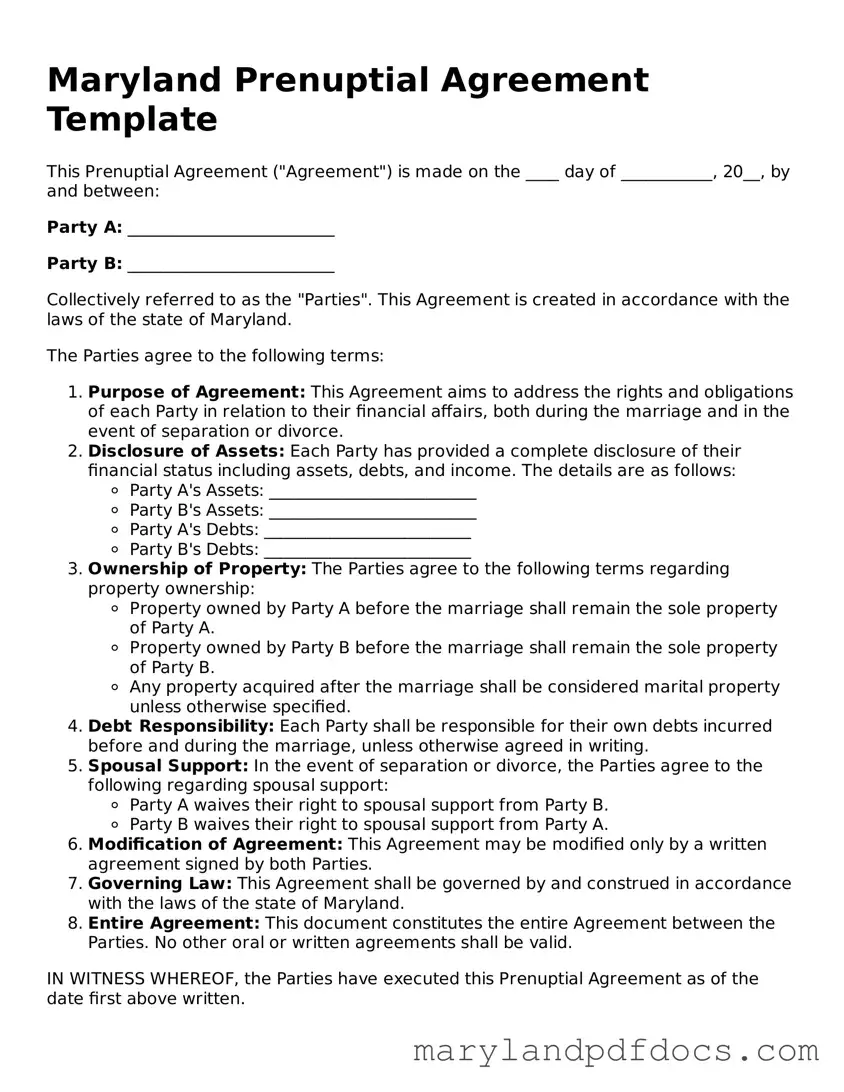What is a prenuptial agreement in Maryland?
A prenuptial agreement, often called a prenup, is a legal document that a couple creates before getting married. It outlines how assets and debts will be divided in the event of a divorce or separation. In Maryland, these agreements can also address other matters, such as spousal support and property rights.
Why should I consider a prenuptial agreement?
Many couples choose to create a prenup to protect their individual assets, clarify financial responsibilities, and minimize potential conflicts during a divorce. It can be particularly beneficial if one or both partners have significant assets, children from previous relationships, or if there is a considerable difference in income or wealth.
What are the requirements for a valid prenuptial agreement in Maryland?
For a prenuptial agreement to be valid in Maryland, it must be in writing and signed by both parties. Both individuals should fully disclose their assets and debts. It’s also important that the agreement is fair and not signed under duress or coercion. Consulting with separate legal counsel is recommended to ensure that both parties understand their rights.
Can a prenuptial agreement be changed or revoked?
Yes, a prenuptial agreement can be modified or revoked at any time. Both parties must agree to the changes, and it’s best to document these modifications in writing. Like the original agreement, any changes should be signed by both parties to ensure their validity.
What happens if a prenuptial agreement is challenged in court?
If a prenup is challenged, a court will review the agreement for fairness and legality. Factors such as full disclosure of assets, whether both parties had independent legal advice, and if there was any coercion will be considered. If the court finds the agreement to be valid, it will be enforced; if not, the court may disregard it.
Is a prenuptial agreement enforceable in Maryland?
Yes, prenuptial agreements are generally enforceable in Maryland as long as they meet the legal requirements. Courts in Maryland typically uphold these agreements unless they are found to be unconscionable or if one party did not fully understand the terms at the time of signing.
How much does it cost to create a prenuptial agreement?
The cost of creating a prenuptial agreement can vary widely depending on the complexity of the agreement and the attorney's fees. On average, couples may spend anywhere from a few hundred to several thousand dollars. Investing in a well-drafted prenup can save significant costs and disputes in the future.
Do I need a lawyer to create a prenuptial agreement?
While it is not legally required to have a lawyer, it is highly recommended. An attorney can help ensure that the agreement is fair, legally sound, and tailored to your specific needs. Having separate legal representation for both parties can also help prevent future disputes about the agreement’s validity.

